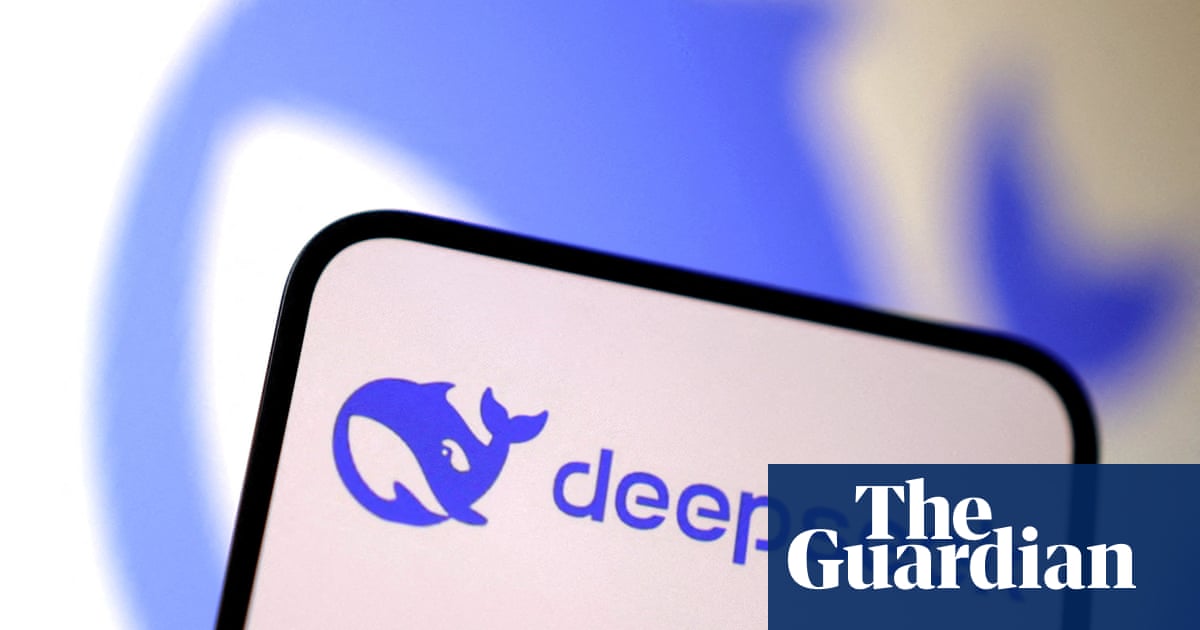In the rapidly evolving world of technology, few announcements can send shockwaves through the industry like a new contender shaking up the status quo. When DeepSeek—a Chinese app designed to challenge the prowess of established AI giants like OpenAI—burst onto the scene, it didn’t just make headlines; it forced Western companies and investors to reevaluate their assumptions about the future of artificial intelligence.
Unpacking DeepSeek's Disruption
DeepSeek, a new player in the artificial intelligence (AI) arena, has taken the tech world by storm. Developed in Hangzhou, China, this app has quickly risen to popularity, claiming remarkable capabilities that rival established systems like ChatGPT-4. But what makes DeepSeek so special? And why has it disrupted the market so dramatically?
Overview of DeepSeek's Capabilities
DeepSeek has garnered attention for its ability to provide responses that are on par with more established AI systems. It operates effectively, offering users intelligent answers across various queries. This capability has led to its swift ascension to the top of the Apple App Store.
- DeepSeek's development cost is astonishingly low, reported at under $6 million.
- In contrast, OpenAI's advanced models require investments exceeding $100 million.
- DeepSeek's creators achieved this in just two months, challenging the notion that cutting-edge AI needs vast resources.
This low-cost development model raises essential questions about the future of AI. Can high-quality AI be developed at such a low cost? Is this the beginning of a new era in AI development?
Comparison with Established AI Systems
When comparing DeepSeek to established AI systems like ChatGPT, the differences are striking. ChatGPT, backed by significant investment and resources, has been a leader in AI for years. However, the emergence of DeepSeek signifies a paradigm shift. As
"The emergence of DeepSeek signifies a paradigm shift, not just in capabilities but in cost expectations across the sector." — Greg Orme
This shift challenges the traditional understanding of what it takes to create advanced AI. It suggests that innovation can thrive even under resource constraints. This reality is particularly relevant in today’s tech landscape, where costs often dictate the pace of development.
Market Reactions and Implications for Stock Values
The rise of DeepSeek has not gone unnoticed by the market. Its success has led to dramatic reactions, particularly affecting established firms like Nvidia. Nvidia, a major player in the AI chip market, has experienced a staggering $600 billion loss in market value. This drop underscores a significant shift in investor sentiment.
- Investors are reconsidering the necessity of expensive hardware in light of DeepSeek's cost-effective approach.
- There has been a transition from "euphoria over artificial intelligence" to a state of "panic," as noted by The Economist.
These market reactions reflect broader implications for the tech sector. Companies may begin to pivot their strategies, focusing more on cost-effective solutions rather than traditional, high-investment models.
Conclusion
DeepSeek's rapid rise showcases a compelling narrative in the AI landscape. As it challenges established norms, the future of AI development appears to be shifting. The implications for market dynamics and stock values are profound. Will other companies follow suit, or will they cling to traditional models? Only time will tell.
The Geopolitical Context: US vs. China in AI
How Geopolitical Tensions Affect Tech Innovation
Geopolitical tensions have a profound impact on technological innovation. When countries are at odds, it often leads to a race for supremacy in various fields, including artificial intelligence (AI). The U.S. and China are at the forefront of this race. Each nation seeks to outdo the other, pushing companies to innovate rapidly. But how does this tension translate into actual technological advancements?
For one, it can create an environment where companies must adapt quickly to survive. In the case of China, the constraints imposed by international relations can foster a unique kind of innovation. Liang Wenfeng, a prominent figure in the Chinese tech scene, emphasizes this point. He states,
"Innovation often flourishes under constraints, and that's where Chinese companies might leap into the challenge."This suggests that limitations can drive creativity and resourcefulness.
Liang Wenfeng's Perspective on China’s Innovation Capabilities
Liang Wenfeng’s insights provide a fresh perspective on China's position in the AI landscape. Historically, China was viewed as a follower in technology. However, the rise of companies like DeepSeek indicates a shift. These firms are not just catching up; they are innovating at a rapid pace. This transition is significant. It challenges the long-held belief that only countries with vast resources can lead in AI development.
- China's ability to innovate under constraints is becoming a key strength.
- DeepSeek, developed in just two months for under $6 million, exemplifies this capability.
- Such achievements raise questions about the traditional need for substantial investment in AI.
Historical Context of US Dominance in the AI Field
The United States has long been considered the leader in AI. This dominance was bolstered by significant investments, such as the $500 billion announced for the Stargate initiative. However, the landscape is changing. The emergence of DeepSeek has caused a reevaluation of the U.S.'s position. The app's success has led to a dramatic shift in market perceptions, even resulting in a significant loss in value for major tech firms like Nvidia.
Why is this important? It highlights a critical juncture in the AI race. The U.S. must now contend with a formidable competitor. Chinese companies are increasingly seen as capable players in the global market. This shift prompts a reevaluation of strategies for both American and Chinese firms.
Governmental Support and Ethical Concerns
Governmental support plays a crucial role in the AI sector. In the U.S., policies are often designed to promote innovation, but they also raise ethical concerns. Issues surrounding privacy and data ethics are particularly pronounced in Western markets. As AI technologies evolve, so do the questions about how they handle user data. These concerns can hinder acceptance of new technologies, especially in regions with strict regulations.
In contrast, Chinese companies may not face the same level of scrutiny, allowing them to innovate more freely. However, this raises questions about the sustainability of their practices. Will they be able to maintain quality and ethical standards as they scale?
As the global AI landscape evolves, the interplay between geopolitical tensions and technological innovation will continue to shape the future. The question remains: how will the U.S. respond to this new reality? The race is on, and every development matters.
Future Scenarios: Navigating the AI Landscape
The rapid evolution of artificial intelligence (AI) presents a landscape filled with both opportunity and uncertainty. As the tech industry grapples with new developments, two potential outcomes emerge: investor panic or accelerated innovation. Understanding these scenarios is crucial for organizations aiming to thrive in this dynamic environment.
Investor Panic vs. Accelerated Innovation
As seen with the rise of DeepSeek, a Chinese AI application, the market's reaction can be swift and severe. Investors may panic, leading to declines in tech stock values. The drop in market confidence, resulting in a staggering loss of $600 billion for Nvidia, illustrates how quickly perceptions can shift. This scenario, termed "DeepSeek Sinks the Market," suggests that companies might retreat from AI investments due to fears of instability.
On the other hand, the second scenario, "DeepSeek Accelerates and Democratizes AI Further," posits that the app's cost-effective model could inspire a surge of innovation. As AI technologies become more accessible, organizations might feel empowered to experiment and implement AI solutions. This democratization could drive a new wave of creativity and efficiency across various industries.
Organizational Responses to Changing Dynamics
Organizations must remain agile to navigate these shifting dynamics. How can they respond effectively? Here are some strategies:
- Invest in Human Skills: As AI becomes more integrated into business operations, the need for human skills increases. Skills like empathy, creativity, and collaboration will be essential. Greg Orme states,
"As AI becomes more accessible, the competitive edge will lie in our human ability to innovate and connect."
- Embrace Experimentation: Companies should foster a culture of experimentation. Allowing teams to explore AI applications can lead to unexpected breakthroughs.
- Monitor Geopolitical Trends: Understanding the global landscape is vital. Geopolitical competition can drive innovation, as history has shown in the realms of the internet and 5G technology.
The Importance of Human Skills in Leveraging AI
While AI can perform many tasks, it cannot replicate the uniquely human qualities that drive innovation. Skills such as curiosity and creativity are becoming increasingly important. Organizations that prioritize these attributes will be better positioned to harness the power of AI technologies effectively.
The implications of cheaper AI technology extend beyond startups. Established firms must also adapt to maintain their competitive edge. The historical context of geopolitical competition suggests that those who innovate under constraints often lead the way. Therefore, companies should focus on developing their workforce's human skills to navigate the complexities of the AI landscape.
In conclusion, the future of AI presents both challenges and opportunities. Organizations must prepare for the potential for investor panic while also embracing the possibilities of accelerated innovation. By focusing on human skills and fostering an environment of experimentation, companies can position themselves to thrive in a rapidly changing world. As the landscape evolves, the call to action is clear: equip the workforce with the necessary tools to leverage AI effectively. Failure to do so could result in being outpaced by competitors who are ready to adapt and innovate.



